Water Heater Repair:
Essential Troubleshooting Tips
Dealing with water heater problems can be frustrating and costly. Whether you're facing issues like a pilot light that won't stay lit or a sudden leak, it's important to address them promptly. Here are some practical tips and smart repair advice to help you troubleshoot common water heater problems:

How a Water Heater Works
A water heater operates using a simple yet effective process. When you turn on a hot water fixture, such as a faucet or shower, cold water enters the water heater through an intake pipe. Inside the water heater tank, there is a heating element or gas burner. Electric water heaters use heating elements that warm up when electricity flows through them, while gas water heaters ignite a burner to create a flame that heats the water.
As the water inside the tank heats up, hot water rises to the top of the tank, where it is stored until needed. When you open a hot water tap, the hot water flows out of the tank and travels through the plumbing system to reach your desired fixtures. As hot water is used, cold water enters the tank to maintain a constant supply. Understanding the fundamentals of a water heater can help you address any issues that may arise.

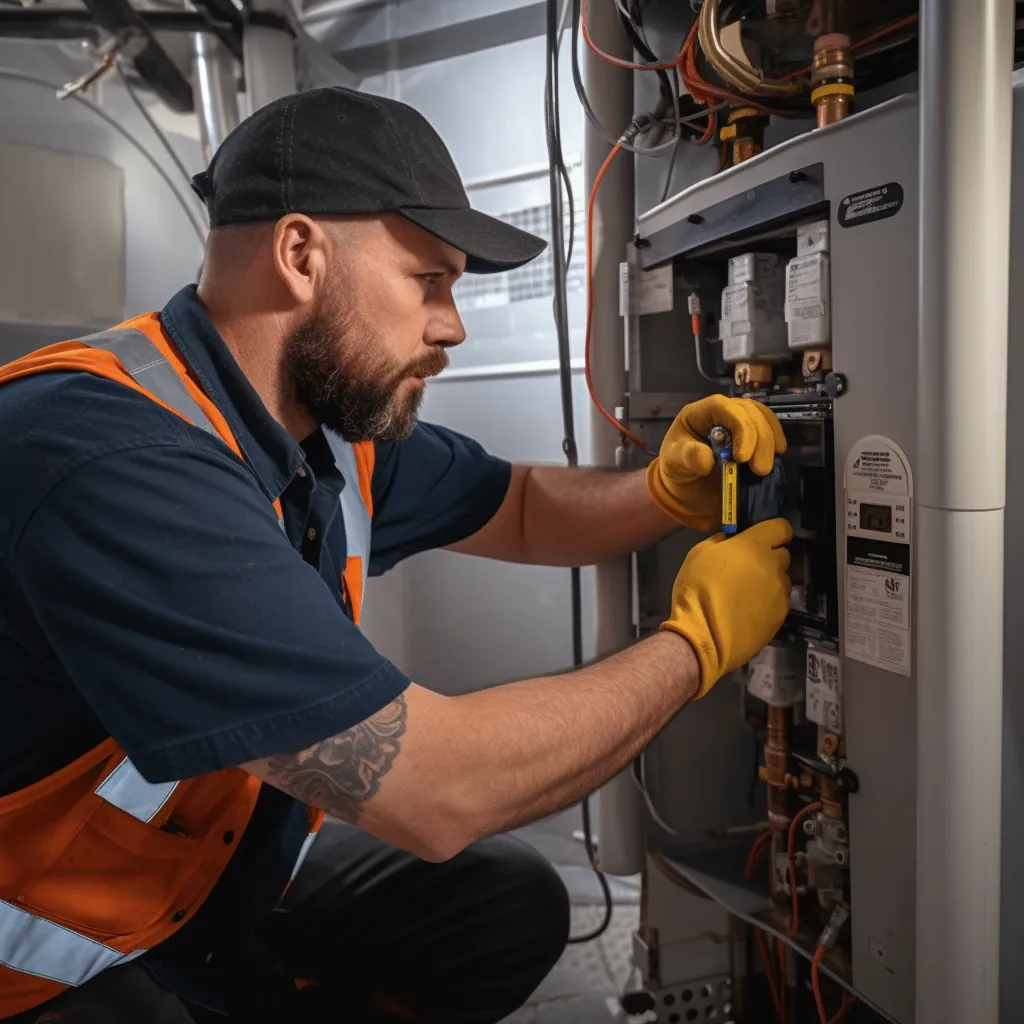
To avoid breakdowns, proper water heater maintenance is essential
Proper maintenance of your water heater is essential to avoid breakdowns and ensure a consistent supply of hot water. By implementing regular upkeep measures, you can enjoy long-term benefits and prevent inconvenient issues. One crucial practice is draining and flushing your water heater on an annual basis. This helps remove sediment buildup, which can negatively impact its efficiency and overall lifespan. Additionally, it is vital to inspect the temperature and pressure relief valve periodically to ensure it is functioning correctly and providing optimal safety. By following these maintenance practices, you can ensure that your water heater operates efficiently and reliably, ensuring hot water is readily available whenever you need it. If you require assistance or have any concerns, it is advisable to consult a professional plumber who can provide expert guidance and support.
What are common signs a water heater
needs to be repaired or replaced?
Water heaters play a vital role in providing hot water when you need it, but they do have a limited lifespan. To keep your water heater in optimal condition, it's crucial to be vigilant for common signs that indicate it may require repair or replacement. Here are some indicators to watch out for:

Lack of Hot Water: If hot water isn't flowing from the tap, check the heating element and ensure there are no obstructions in the pipes
No Hot Water: Complete absence of hot water could indicate a malfunctioning thermostat or other internal components of the heater
Leaks: A noticeable leak may result from a broken pipe or valve, necessitating immediate repair
Discolored Water: If the water appears discolored, it may indicate corrosion within the water heater tank, requiring prompt replacement
Unusual Noises: Loud banging or rumbling noises from the heater may indicate sediment build-up, which should be promptly addressed.
To prevent unexpected issues with a malfunctioning water heater, it is essential to recognize warning signs in a timely manner and take prompt action to restore the system before it completely fails.

Water heater malfunctions can occur due to several factors:
Water heater malfunctions can stem from various causes, including problems with thermostats, electrical issues, or sediment build-up. While minor issues can often be resolved independently, a malfunctioning water heater may indicate underlying problems within your home's systems. Regular maintenance and attentiveness to warning signs are crucial to avoid unexpected breakdowns and maintain efficient heating. By addressing issues promptly and ensuring proper care, you can extend the lifespan of your water heater and ensure uninterrupted hot water supply.
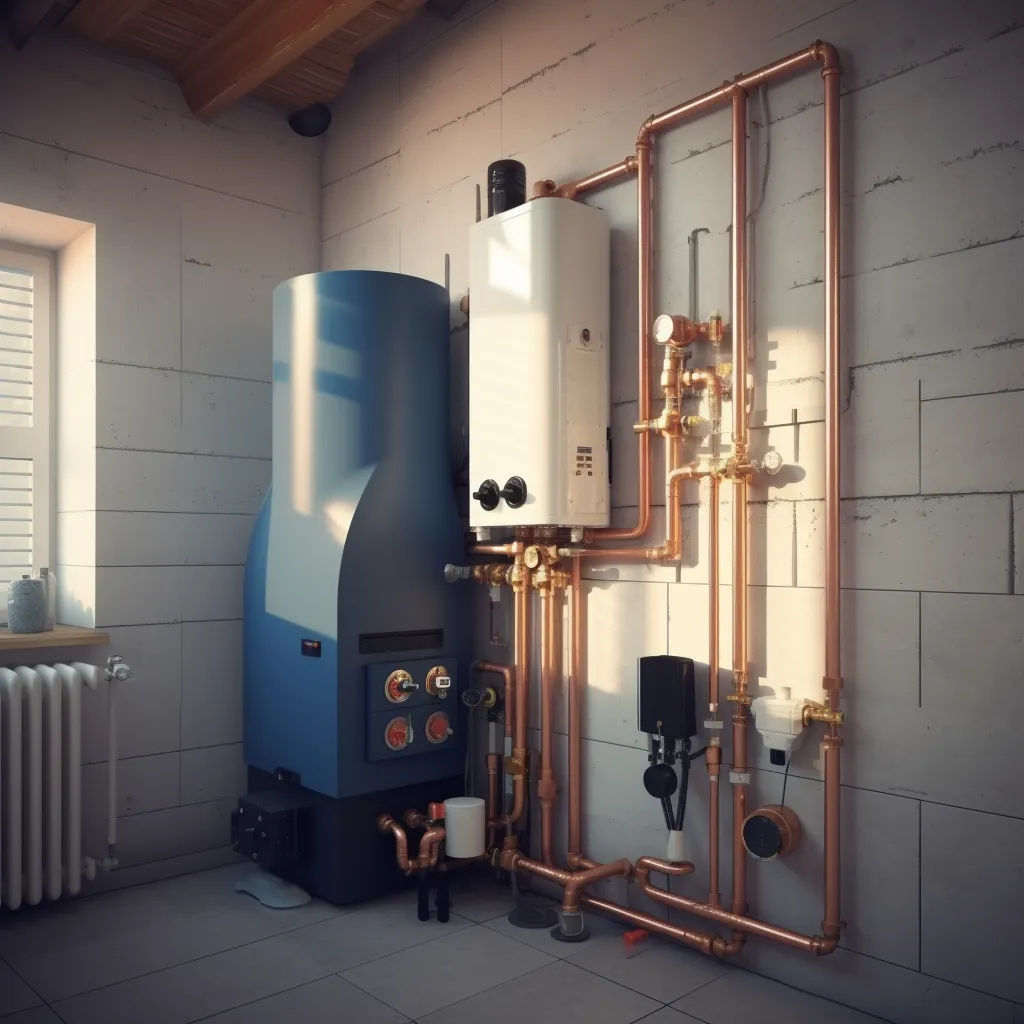
Check the temperature setting on your water heater
To ensure the efficiency and safety of your water heater, it's important to regularly check the temperature setting. Setting the temperature correctly prevents risks of scalding and energy waste or, on the other hand, insufficient hot water. Fortunately, adjusting the temperature is a quick process that ensures your comfort and convenience. According to the Department of Energy, the recommended temperature for optimal efficiency and safety is 120°F (49°C). Taking a few minutes to optimize the temperature setting will help maintain the proper balance of hot water usage and energy consumption.
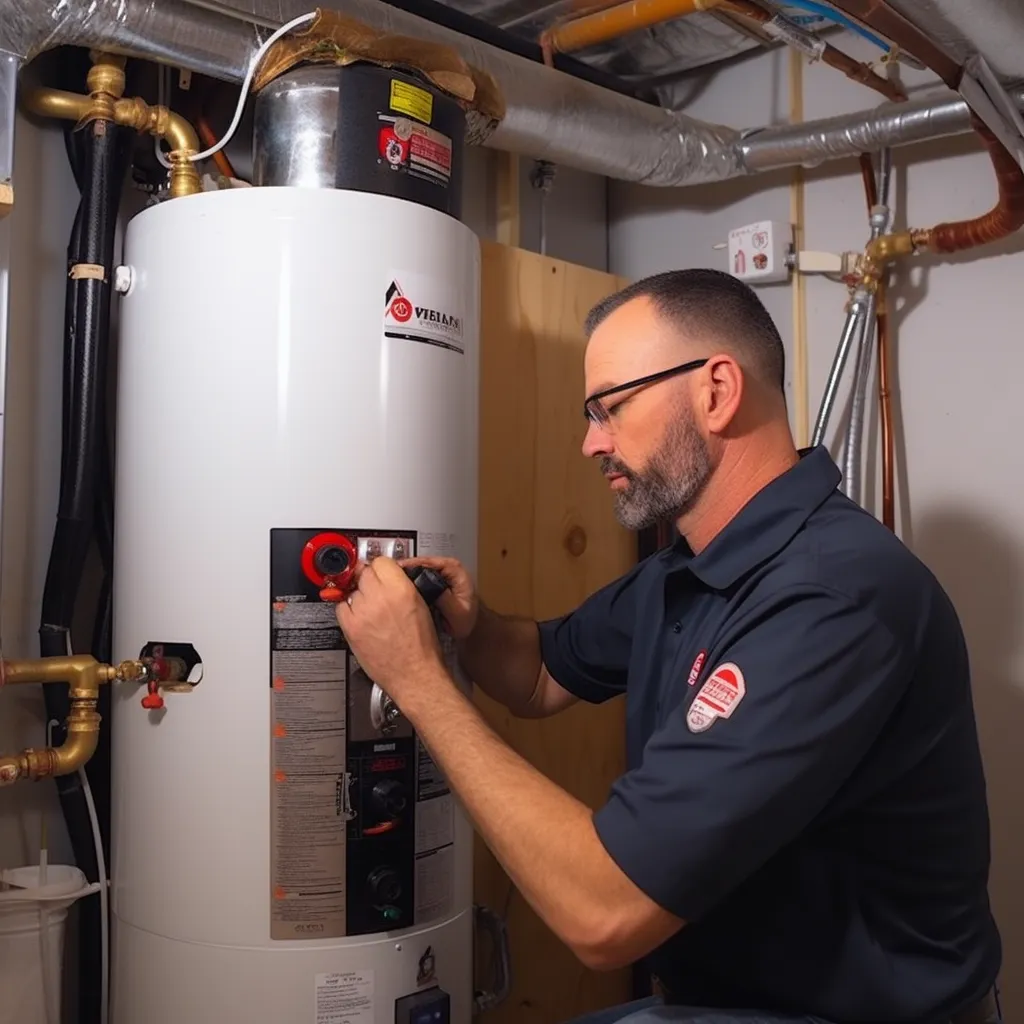
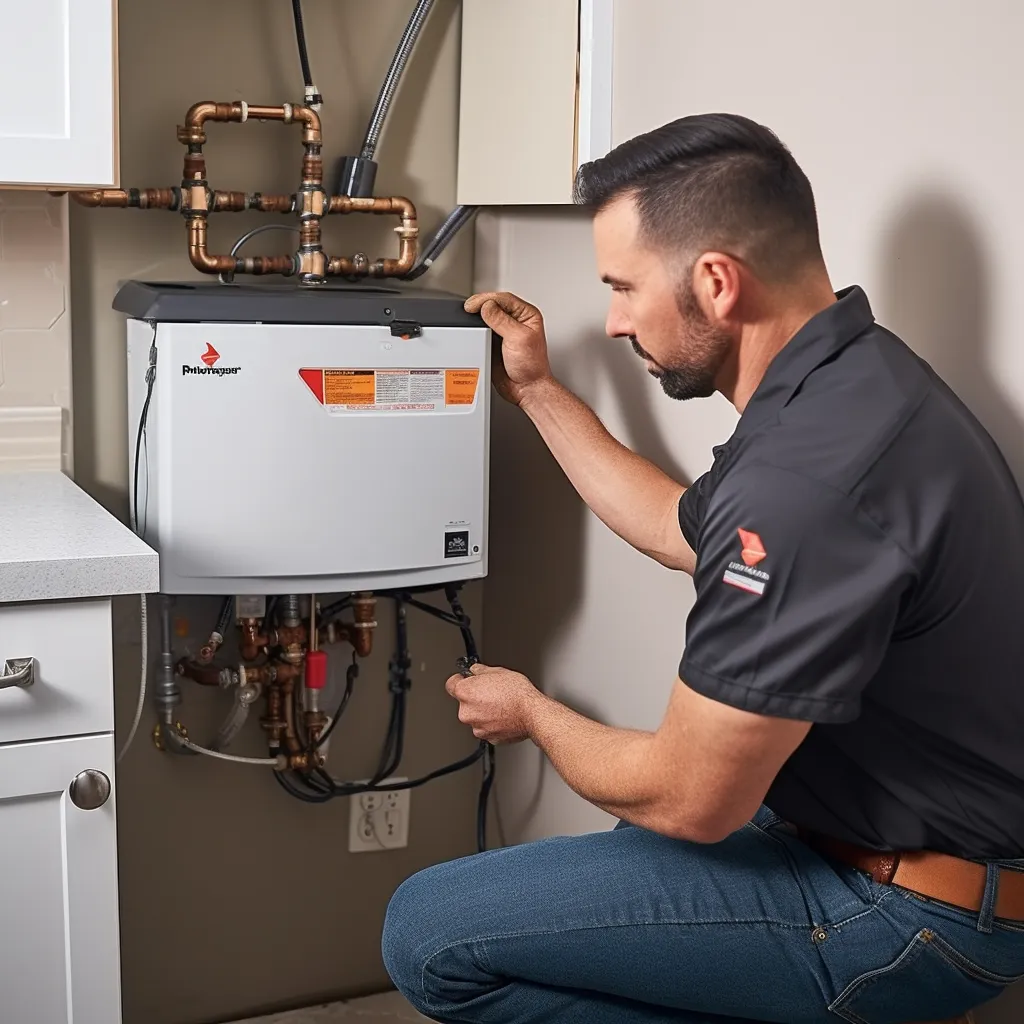
Perform regular
visual inspections
Regular visual inspections are essential for maintaining the proper functioning of your water heater. It is recommended to inspect your water heater every two months to identify any potential issues. During the inspection, carefully check for leaks, signs of rust, or any other noticeable problems.

Test the water heater pressure relief valve
to make sure it works
Regularly testing the pressure relief valve on your water heater is crucial for ensuring its proper functionality. By taking a few moments to test the valve, you can help prevent potential accidents and minimize the risk of water damage, ensuring the safety and security of your home.
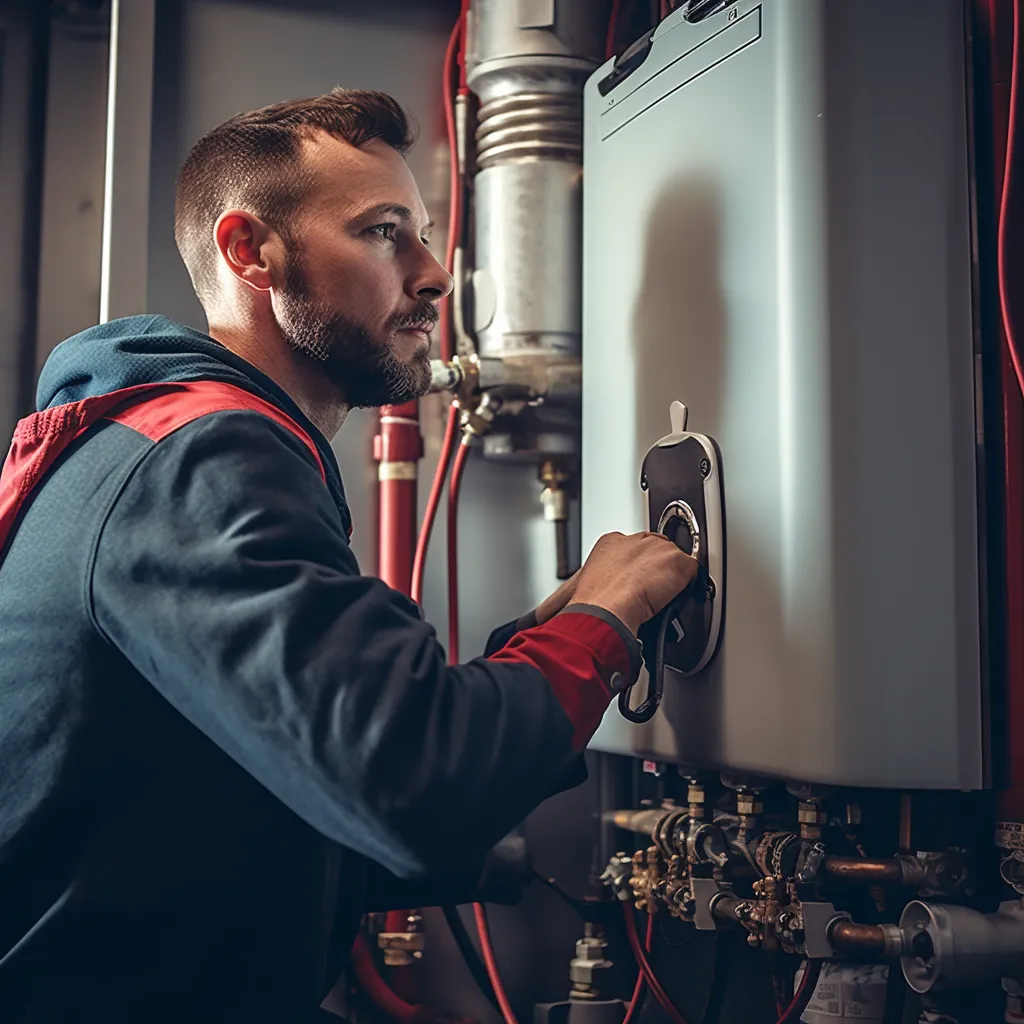
Check for signs of rust and corrosion
around the water heater tank
It is important to regularly check your water heater tank for signs of rust and corrosion. These visual inspections are crucial maintenance tasks that can help prevent potential leaks and problems in the future. Giving your water heater the care and attention it deserves includes being attentive to any visible signs of rust or corrosion.
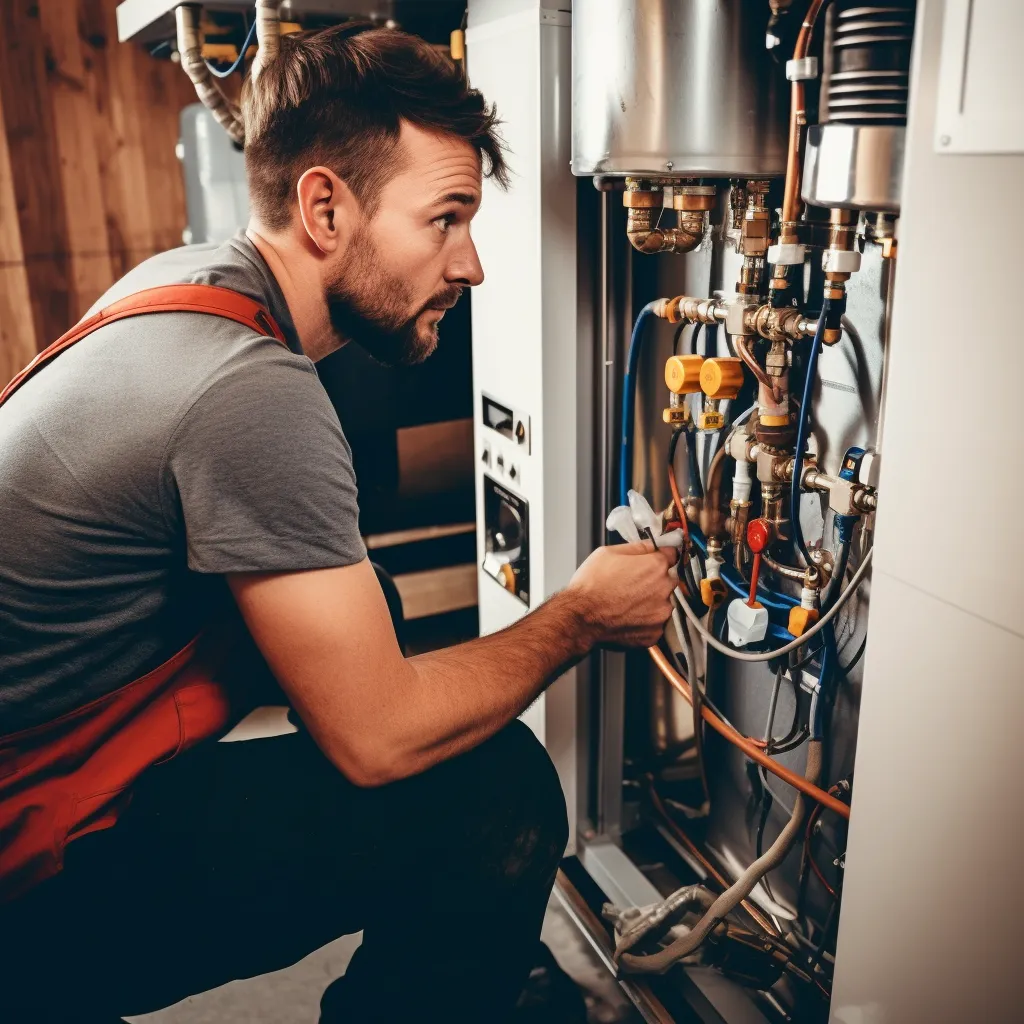
Water heater connections should be tight and secure
To prevent leaks or malfunctions, it is important to ensure that all connections on your water heater are tightly secured. Regularly inspect these connections to ensure they are snug and properly fastened. By doing so, you can ensure the smooth and efficient operation of your water heater, giving you peace of mind and uninterrupted hot water supply.

Keep the water heater and pipes free of sediment buildup
To maintain the efficiency and performance of your water heater, it is crucial to prevent sediment buildup in both the heater itself and the associated pipes. Sediment accumulation can lead to decreased efficiency, reduced water flow, and potential damage to the system. Regular maintenance tasks such as draining and flushing the water heater can help remove sediment and keep it running smoothly. Additionally, installing a sediment filter or water softener can further minimize the risk of sediment buildup. By keeping your water heater and pipes free from sediment, you can prolong the lifespan of your system and ensure optimal performance.


Keep the water heater burner assembly clean
Regularly cleaning the burner assembly of your water heater is essential for maintaining its smooth operation. Over time, debris and dust can accumulate on the burner assembly, leading to reduced efficiency and increased wear and tear. By regularly cleaning the burner assembly, you can prevent costly repairs, save on energy costs, and ensure that your water heater functions at its best

Check out the variety of water heater options available and learn how to keep each type in tip-top shape
Homeowners should familiarize themselves with the various types of water heaters available and understand the specific maintenance requirements for each:
Gas Water Heaters: Annual tank flushing is recommended to remove sediment build-up and maintain efficiency.
Electric Water Heaters: Depending on their age and condition, the anode rod may need replacement to prevent corrosion.
Tankless Water Heaters: Descaling the heating elements every few years helps maintain their performance.
Solar Water Heaters: An annual check ensures the panels and components are functioning effectively.
Condensing Water Heaters: Regular maintenance checks, including inspection for corrosion, are necessary.
Smart Water Heaters: Software updates and firmware changes may be required periodically.
Heat Pump Water Heaters: Annual inspections can detect any issues related to excess heat or other concerns.
By understanding the specific maintenance needs of their water heater type and performing regular checks and upkeep, homeowners can avoid potential problems, extend the lifespan of their water heater, and ensure it operates smoothly.
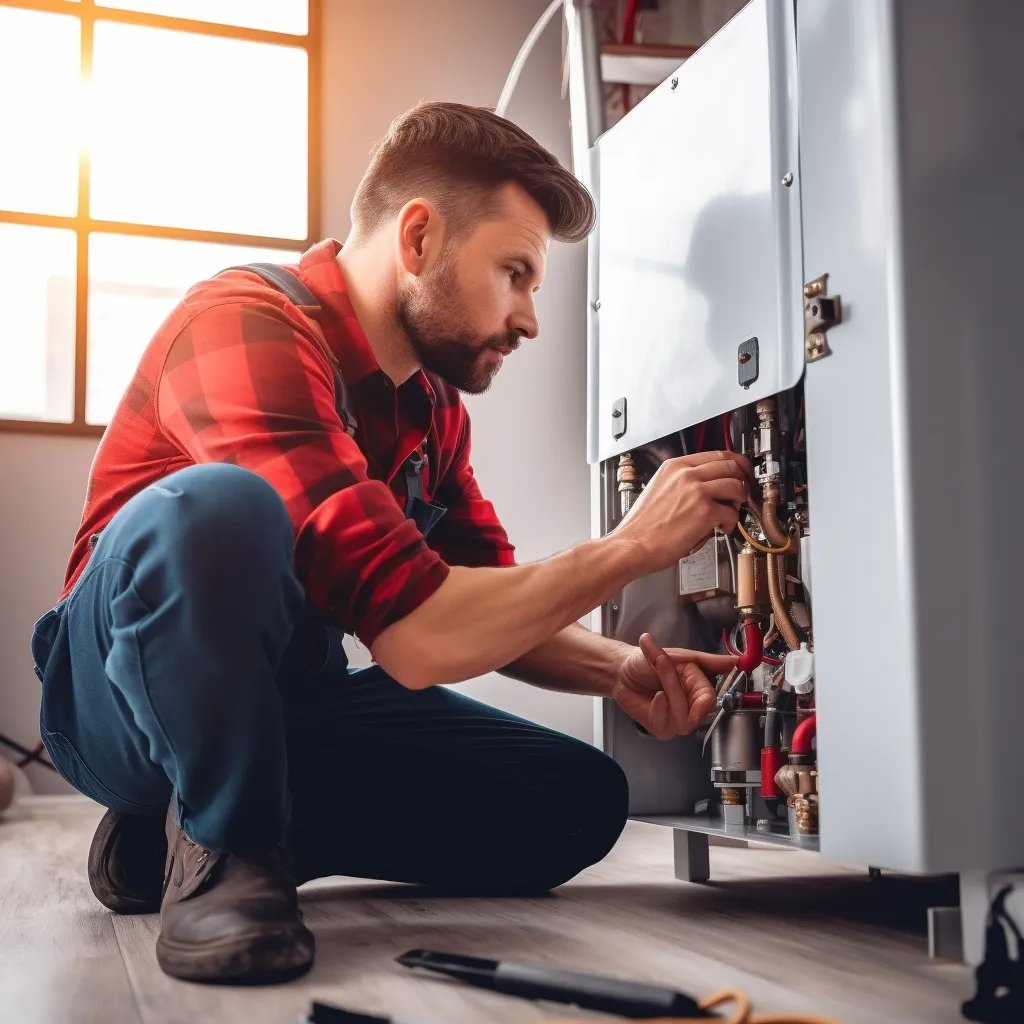
Troubleshooting tips
to help you identify
water heater problems
When encountering water heater problems such as a lack of hot water, temperature irregularities, strange noises, or leaks, there are troubleshooting steps you can take before contacting a technician. Begin by checking if the circuit breaker for the water heater is tripped and adjusting the thermostat to the desired temperature. If strange noises are present, consider draining the water heater to remove any sediment buildup. Lastly, inspect the connections and valves for any visible leaks and tighten any loose fittings if necessary.
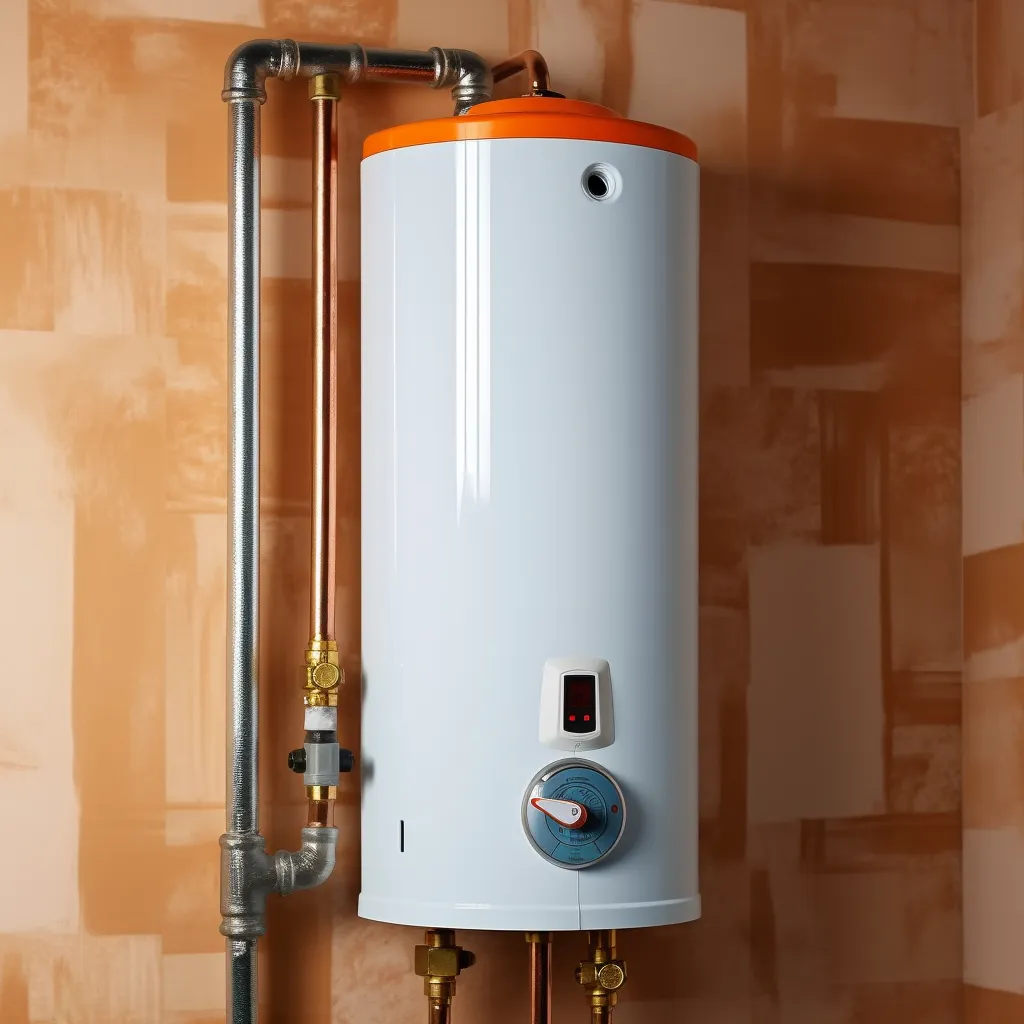
Benefits of hiring a water heater professional
If your water heater is damaged or faulty, it is important not to compromise your safety and comfort. Seeking assistance from a licensed plumber is the best course of action. A licensed professional brings expertise to the job, ensuring that it is done correctly and effectively. The benefits of hiring a licensed plumber include:
Our water heater services cover all your needs, ensuring a comprehensive solution. Our certified professionals specialize in various areas, including the installation of new systems, thorough inspection and diagnosis of existing systems, as well as efficient repairs, replacements, and ongoing maintenance.
We understand that every home is unique, and we offer personalized advice to help you choose the best type of water heater system that suits your specific needs and requirements. Whether you need assistance in resolving issues or guidance in selecting the most suitable system, our experts are here to ensure that you make informed decisions for your home.
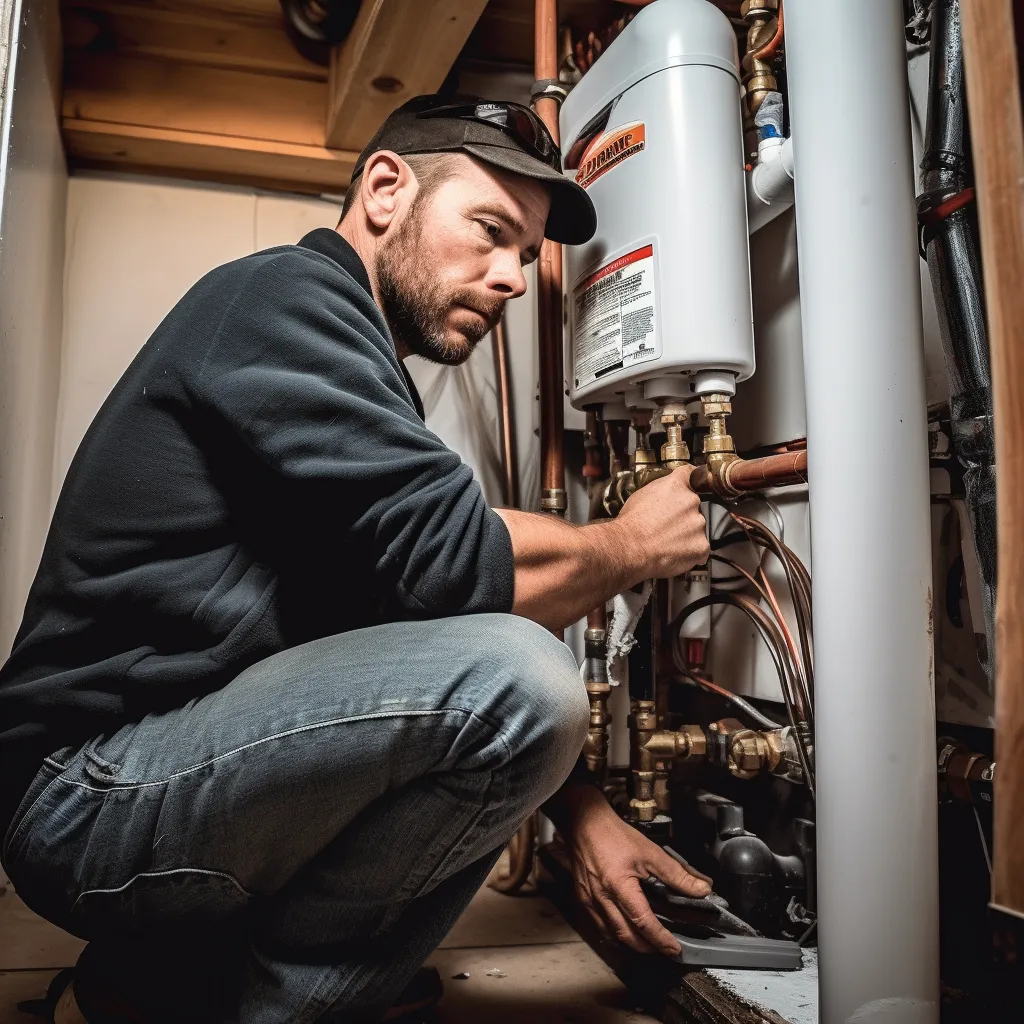
Research is important
Regular maintenance of your water heater is a wise investment that can save you both time and money in the long run. By staying vigilant and addressing issues promptly, you can prevent costly breakdowns and repairs. Keep an eye out for any signs of malfunction and conduct research to understand their underlying causes. Monitor the temperature and pressure regularly, inspect for any corrosion or rust, ensure secure connections, and keep the tank and pipes free of sediment buildup. Familiarize yourself with the maintenance requirements of different water heater types to make an informed decision based on your specific needs. Finally, it is crucial to have a licensed professional verify that everything is functioning correctly to ensure optimal performance and safety.
Ready to Solve Your Plumbing Needs?
For reliable, expert plumbing services tailored to the needs of Malden and its neighboring cities, look no further than Water Heater Genies. We’re here for you 24/7, ensuring that your plumbing is always in top condition.
Call us today to schedule your service!
Business Hours: Monday - Sunday, 24 Hours
Phone Number: (781) 679-1733
Location: Malden, MA serving all surrounding areas.
Trust your local experts at Water Heater Genies for professional, timely, and efficient plumbing solutions.
GET IN FULL TOUCH
PHONE: (781) 679-1733
EMAIL:
marcus@waterheatermalden.com
Water Heater Genies
Malden, MA 01248
